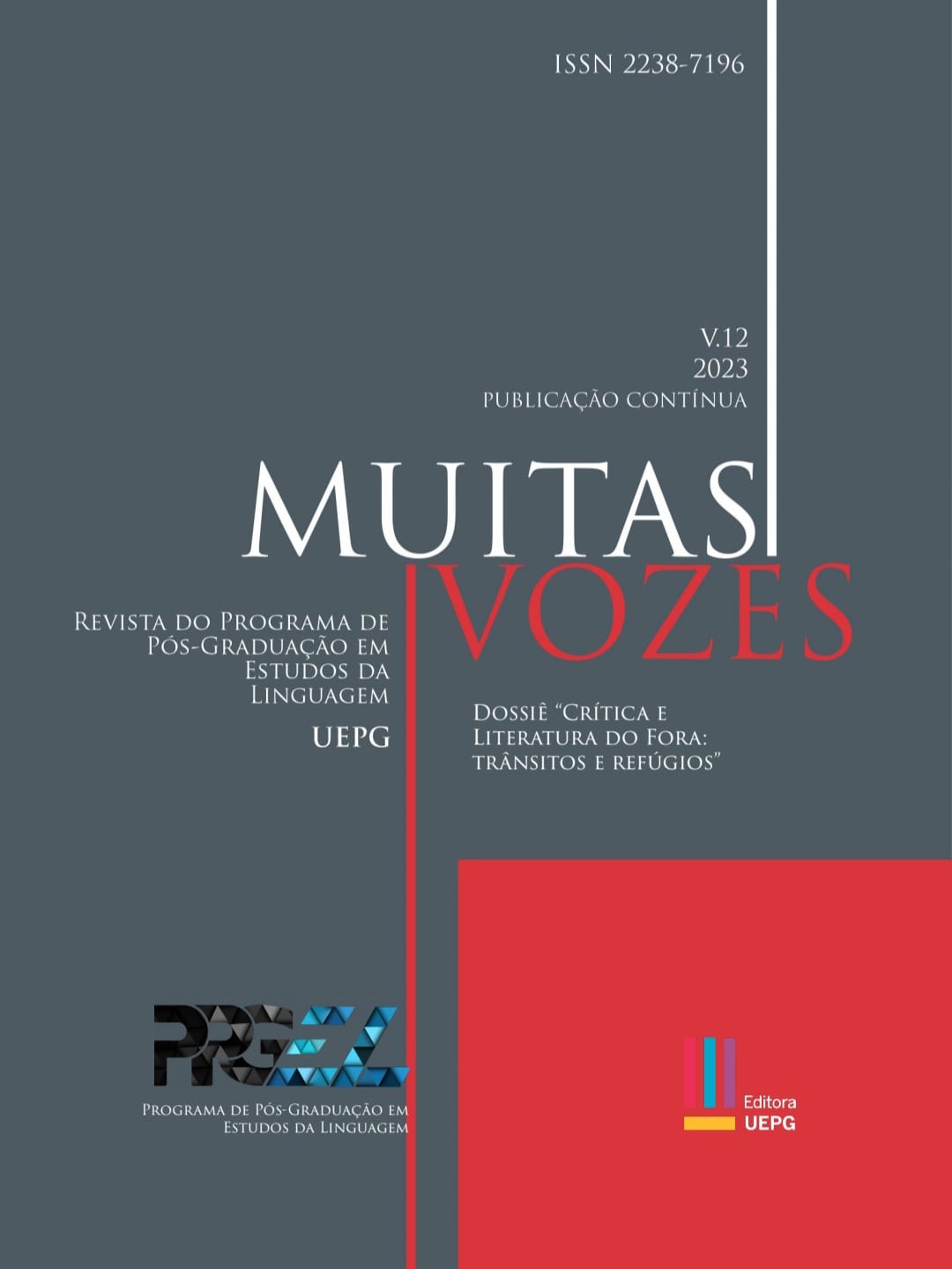DUAS VERSÕES DO FORA: DISTINÇÃO E DISSOLUÇÃO
Abstract
In the linguistic turn of the 19th and 20th centuries, which questions the alleged neutrality of language, the outside was a strategy employed by certain thinkers, especially German and French ones, to escape the positivism of knowledge discourses. As a critical gesture towards modernity, this reflective position does not assert something, but unfolds discourses infinitely, even denying some of the most cherished elements of modern literature such as the authorship and the work of art. This permeates authors like Novalis, Friedrich Nietzsche, Martin Heidegger, Georges Bataille, Roland Barthes, Michel Foucault, and Maurice Blanchot. Focusing on the last one, especially his book "The Infinite Conversation" (1969), this paper discusses how the thought of the outside takes shape in two chronotopes, the 1800s and the 1970s, highlighting its influence on the respective understandings of literature. Finally, it reflects on its manifestation in contemporary Brazilian literature, in particular Hilda Hilst’s and Juliano Garcia Pessanha’s fiction.
Downloads
Downloads
Published
How to Cite
Issue
Section
License
Copyright (c) 2024 Muitas Vozes

This work is licensed under a Creative Commons Attribution 4.0 International License.

Este obra está licenciado com uma Licença Creative Commons Atribuição 4.0 Internacional.
Transferência de direitos autorais: Caso o artigo submetido seja aprovado para publicação, JÁ FICA ACORDADO QUE o autor AUTORIZA a UEPG a reproduzi-lo e publicá-lo na REVISTA MUITAS VOZES, entendendo-se os termos "reprodução" e "publicação" conforme definição respectivamente dos incisos VI e I do artigo 5° da Lei 9610/98. O ARTIGO poderá ser acessado tanto pela rede mundial de computadores (WWW - Internet), como pela versão impressa, sendo permitidas, A TÍTULO GRATUITO, a consulta e a reprodução de exemplar do ARTIGO para uso próprio de quem a consulta. ESSA autorização de publicação não tem limitação de tempo, FICANDO A UEPG responsável pela manutenção da identificação DO AUTOR do ARTIGO.



